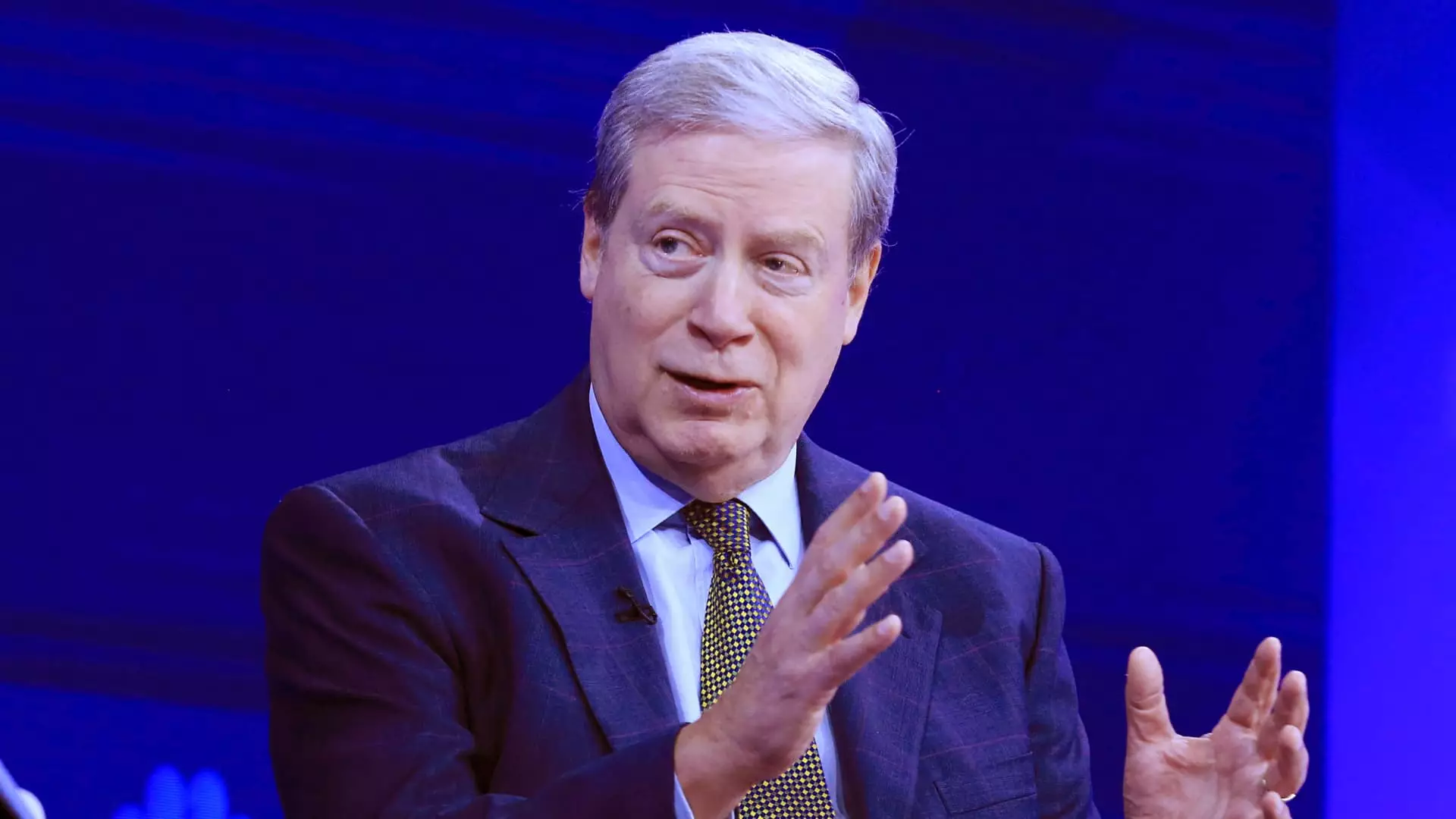In recent comments, billionaire investor Stanley Druckenmiller expressed an invigorated outlook on the financial markets following Donald Trump’s re-election. His view represents a notable shift in sentiment from previous years, when many business leaders felt stifled by resource-heavy regulations and an apparent aversion to corporate dynamics. “In my 49 years of experience,” Druckenmiller remarked during a CNBC appearance, “we are witnessing a shift from the most anti-business administration to something entirely different.” This observation resonates with numerous CEOs who, according to Druckenmiller, experience a blend of relief and optimism, indicating a rekindling of what he refers to as “animal spirits.”
This renewed enthusiasm is visible in stock market behavior, particularly with the S&P 500 experiencing an impressive surge of nearly 6% in November alone, attributed directly to Trump’s economic policies such as tax cuts and deregulation. The essence of this burgeoning optimism lies in its belief that such measures could encourage investment flows and uplift asset classes, ranging from traditional equities to burgeoning sectors like cryptocurrencies.
Despite his bullish stance on economic growth, Druckenmiller’s perspective on the stock market itself is layered with caution, particularly regarding elevated bond yields. As he elaborated, the interplay between a robust economy and rising bond yields creates a complex financial landscape. “It’s not as straightforward as it appears,” Druckenmiller explained. “The strength of the economy may drive bond yields higher, complicating my outlook.” This reflects a more conservative approach, acknowledging the intricate dynamics between various asset classes that could pose risks even amid prevailing bullish sentiments.
While Druckenmiller has maintained a short position against U.S. Treasurys—betting that rising yields will penalize bond prices—his inclination to focus on individual stocks reveals a strategic pivot. He emphasizes tapping into the potential of companies that leverage artificial intelligence to lower operational costs and improve efficiency. Although he did not disclose specific investments in this sector, his earlier divestments from tech giants like Nvidia and Microsoft raise questions about his evolving investment philosophy in this rapidly changing technological landscape.
The discourse surrounding tariffs is another critical component of Druckenmiller’s analysis. He posits that the revenue generated from tariffs could play a significant role in addressing the country’s fiscal challenges. “Our fiscal situation is precarious; hence, we need revenue inflows,” he argued. Characterizing tariffs as a kind of consumption tax that foreign parties essentially bear, he suggests that the economic benefits may outweigh the potential downsides. Nevertheless, he cautions against escalating tensions—such as retaliatory measures from trading partners—even suggesting that risks remain manageable within moderate tariff ranges.
The Trump administration’s approach to tariff implementation, as hinted by Druckenmiller, signals an intention to gradually establish a framework that would ease stakeholders into the new trade reality without abrupt shocks to the market. Such deliberation reflects a calculated risk-taking that could shape both domestic and global economic landscapes in the near term.
Druckenmiller’s insights provide a nuanced understanding of the current investment atmosphere. While his investments and strategies imply significant opportunities stemming from the administration’s policies, his cautious air reminds investors of the complex interplay of factors that govern market behavior. For those navigating the investment waters, embracing a focus on individual businesses, particularly in innovative sectors like artificial intelligence, may yield the most fruitful opportunities. In this evolving environment characterized by fluctuating sentiment and regulatory futures, staying informed and adaptable will be essential for success.

